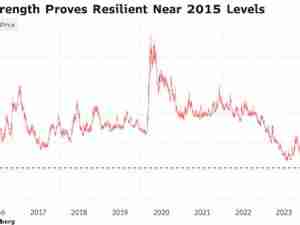Animal health authorities in Southeast Asia have beefed up border surveillance for African swine fever after a third outbreak of the deadly pig virus was reported in China’s southwestern Yunnan province.
The fast-spreading virus was found in a “backyard” operation last week in Guanfang village, within about 200 kilometers (124 miles) of China’s border with Myanmar and Laos and near Thailand. Some countries have taken measures at the border to control the introduction of people, animals, and products from China, said Laure Weber-Vintzel, the Bangkok-based deputy regional representative for the World Organisation for Animal Health.
“The virus is spreading extremely quickly in China, highlighting the challenge controlling the transportation of pigs and pork products,” Weber-Vintzel said Wednesday in a telephone interview. “Infected pork products play an important role in disease-spread and should not be underestimated.”
The outbreaks in Yunnan “probably represent an increased risk” because of their proximity to the border, and add to the threat of international spread already posed by the movement of humans who carry the virus in contaminated pork products “which can be transported over long distances,” she said.
For Surachai Sutthitham, president of the Thai Swine Raisers Association, the latest outbreak poses the biggest threat yet to the country’s $3.3 billion hog industry.
“This is the most worried I’ve ever been in my 17 years as president,” Surachai said. “The government should prepare for the possible outbreak and do whatever it takes to avoid the problem in Thailand.”
Fourteen Chinese provinces have reported infected pigs since the disease began spreading there in August. Chinese veterinary officials have attempted to control the movement of livestock, increased disease surveillance, screened animals, quarantined affected farms and tried to trace the source of infection, according to a Nov. 1 report prepared by Zhang Zhongqiu, the director general of the China Animal Disease Control Center, for the Paris-based World Organization for Animal Health, also known as the OIE.
Vietnam Response
Vietnam’s animal health department said that there’s a very high risk of the virus being brought into the country from China, especially in northern border areas and where there are many foreign tourists. The department said it has set up inspection teams and will help closely monitor trade at the border to prevent the spread. The agriculture ministry has also informed countries that it’ll suspend pig-product imports from places suffering from outbreaks.








